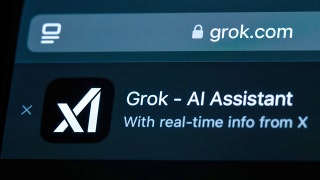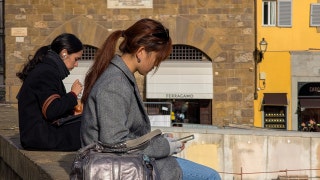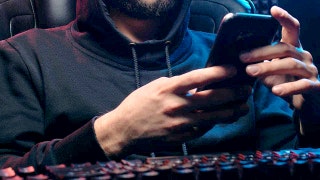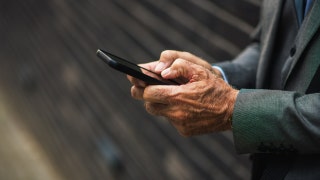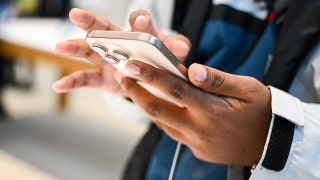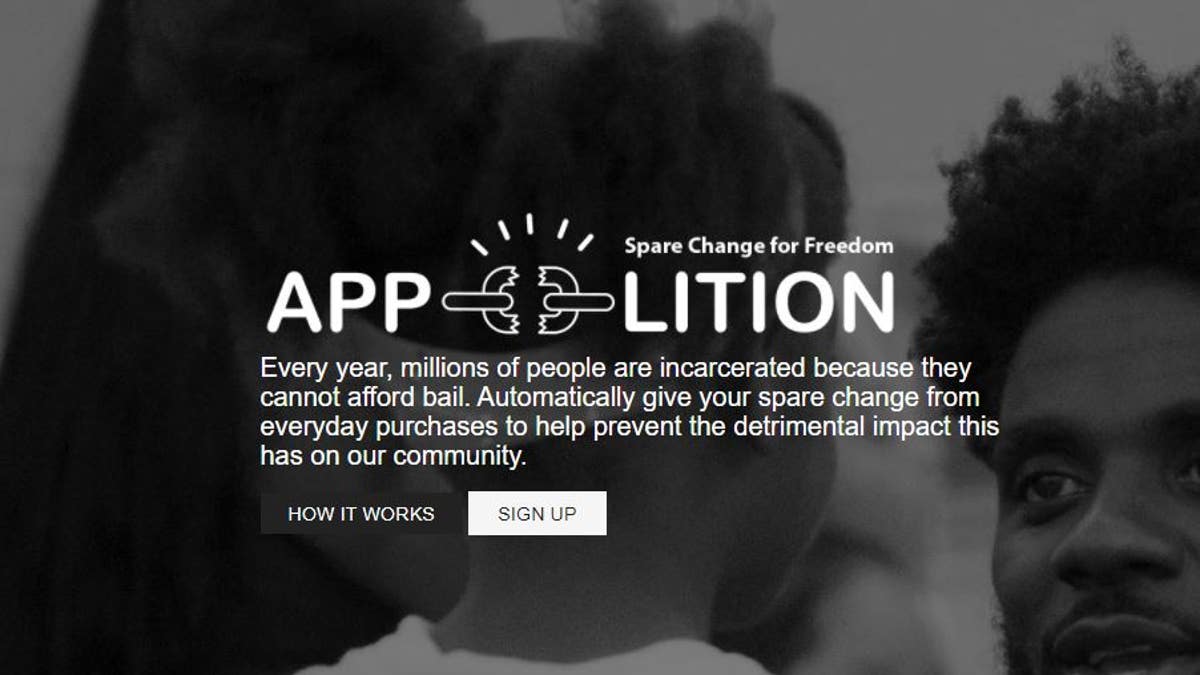
Appolition launched there weeks ago and has already raised more than $11,000 to bail people out of jail. (APPOLITION.US)
The vast majority of the 700,000 people who are locked up in America’s local jails have not been convicted of any crime. Unable to afford bail and awaiting trial, they’re separated from society at a significant cost to taxpayers.
“Appolition,” a new app launched three weeks ago, aims to change this with a simple idea: Why not allow everyday people to donate their spare change from purchases to help low-income incarcerated people make bail?
The app, taking a cue from crowdfunding sites such as GoFundMe, connects to your bank account, and then each debit card purchase is rounded up to the nearest dollar and donated each time you reach at least 50 cents in spare change. You can pause and resume your donations at any time through the app and you will be able to pay with credit cards soon.
SENATORS DEMAND ANSWERS ABOUT DATA BREACH
“Our short term goals are to get as many people home for the holidays as possible,” Dr. Kortney Ziegler, co-founder of Appolition, told Fox News.
Cash bail is meant to guarantee that defendants don’t vanish between arrest, arraignment and trial, and it can vary from a few hundred dollars to hundreds of thousands. However, those who can’t afford bail have to be kept in prison before they’ve even had a trial.
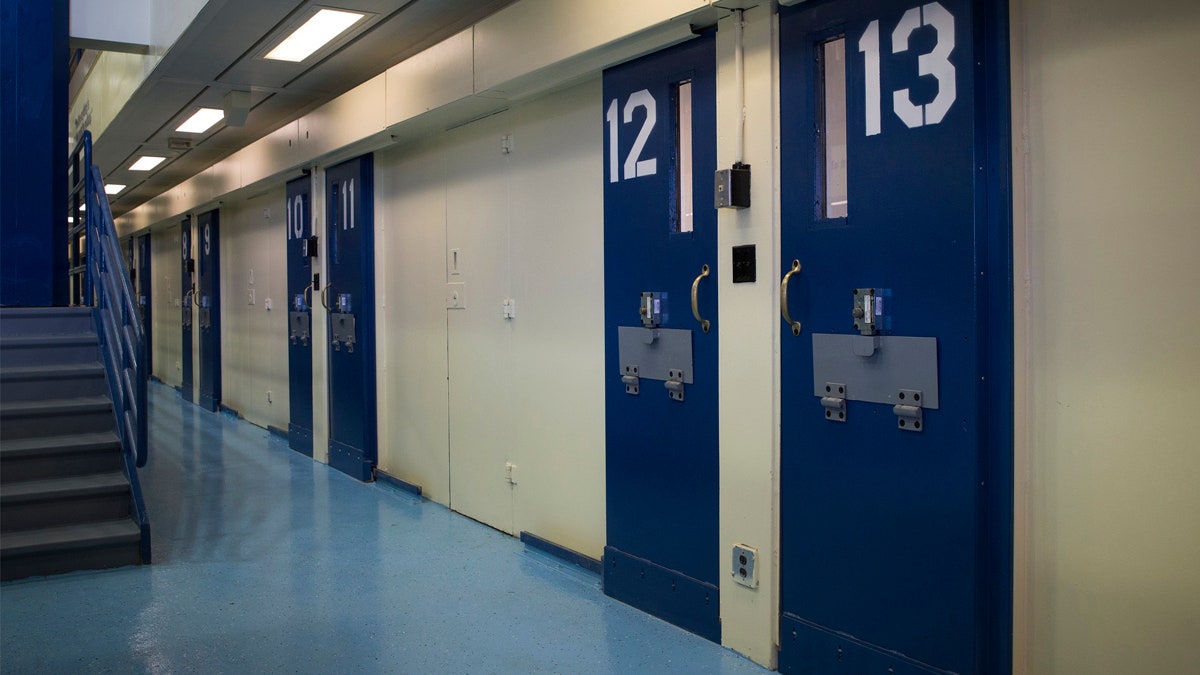
Jail cells are seen in the Enhanced Supervision Housing Unit at the Rikers Island Correctional facility in New York. (Reuters)
Appolition partners with National Bail Out, a group that helps with bail amounts of up to $2,000. One organization that National Bail Out works with, Brooklyn Bail Fund, assists those who are in dire straits: low-income mothers, those suffering from addiction and abuse survivors, for example. The law limits bail assistance to people who have been charged with misdemeanors.
Although the app launched only three weeks ago, 5,000 users have signed up and raised a total of $11,000. So far, nine people have been bailed out because of funds raised by the app (with average bail amounts of about $910).
Ziegler first tweeted about the idea in July and soon enough, connected with folks who have expertise in building crowdfunding software to launch the platform.
According to a study from the Vera Institute of Justice, the annual cost, per incarcerated individual, averaged out to $47,057 in 35 different jurisdictions.
The app arrives at a time when lawmakers on both sides of the aisle, including Sens. Kamala Harris (D-Calif.) and Rand Paul (R-Key.), have called for bail reform as a way to shrink America’s prison population, which at 2.2 million is the highest in the world.
AS OUTRAGE INTENSIFIES, GOOGLE HIGHLIGHTS NEW WAYS TO CLEAN UP YOUTUBE
In August 2016, the Justice Department filed a document to a Georgia federal appeals court arguing that it’s unlawful to jail someone who can’t afford their bail. The DOJ filed the document in response to the case of Georgia man Maurice Walker, who was charged with a misdemeanor offense and spent six nights in jail because he could not pay his $160 bail.
Advocates who want to see cash bail reformed or eliminated point to the case of Kalief Browder, who at 16, was imprisoned on Riker’s Island for three years, which included 800 days in solitary confinement, after being accused of stealing a backpack containing a camera; although he was released in 2013 due to a lack of evidence, Browder battled depression after his experience and committed suicide on June 6, 2015.
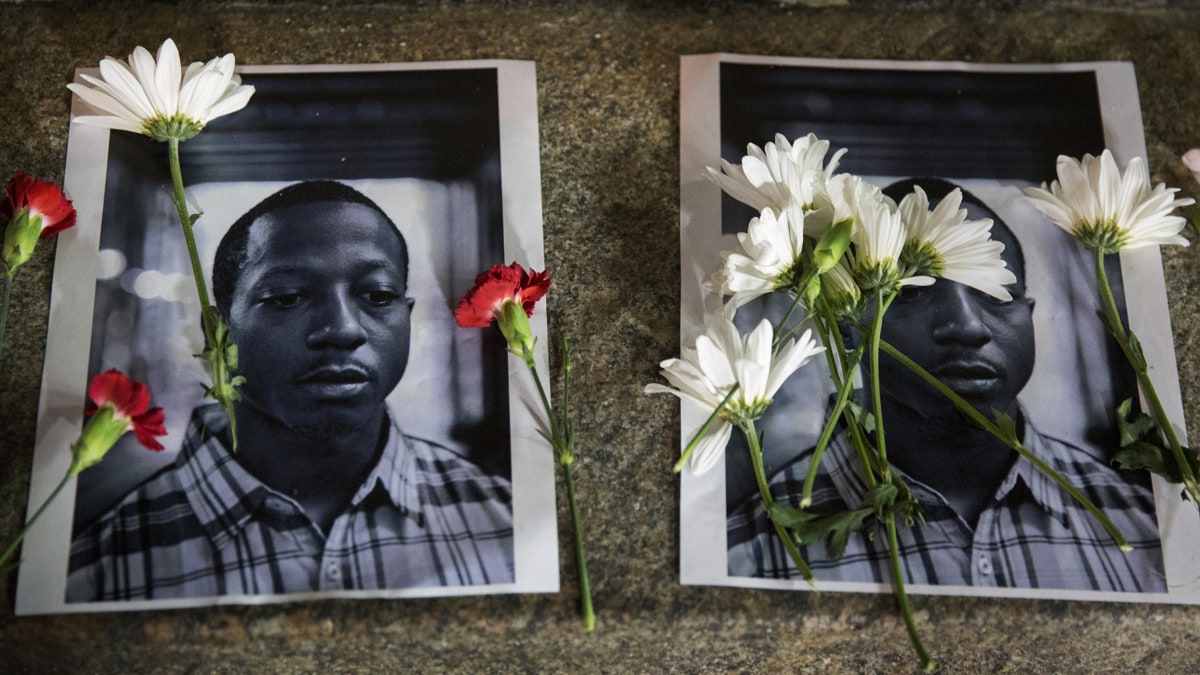
Flowers rest on top of pictures of Kalief Browder in New York. Browder had been held there for three years without being convicted of a crime. (Reuters)
New York City jails held an average of 3,931 prisoners a day in 2016 who couldn’t make bail—costing taxpayers about $116 million—the city’s Independent Budget Office recently reported. In about half the instances where bail was the issue, the amount that would lead to freedom was $5,000 or less.
The money bail system disproportionately impacts those who are poor. According to a 2016 report from the Prison Policy Initiative, people in jail had a median income of just $15,109 before their incarceration — half that of non-incarcerated people.
“Long term, we see the platform being used in a variety of ways to bolster the voices of those in need beyond just a financial contribution,” said Ziegler.



